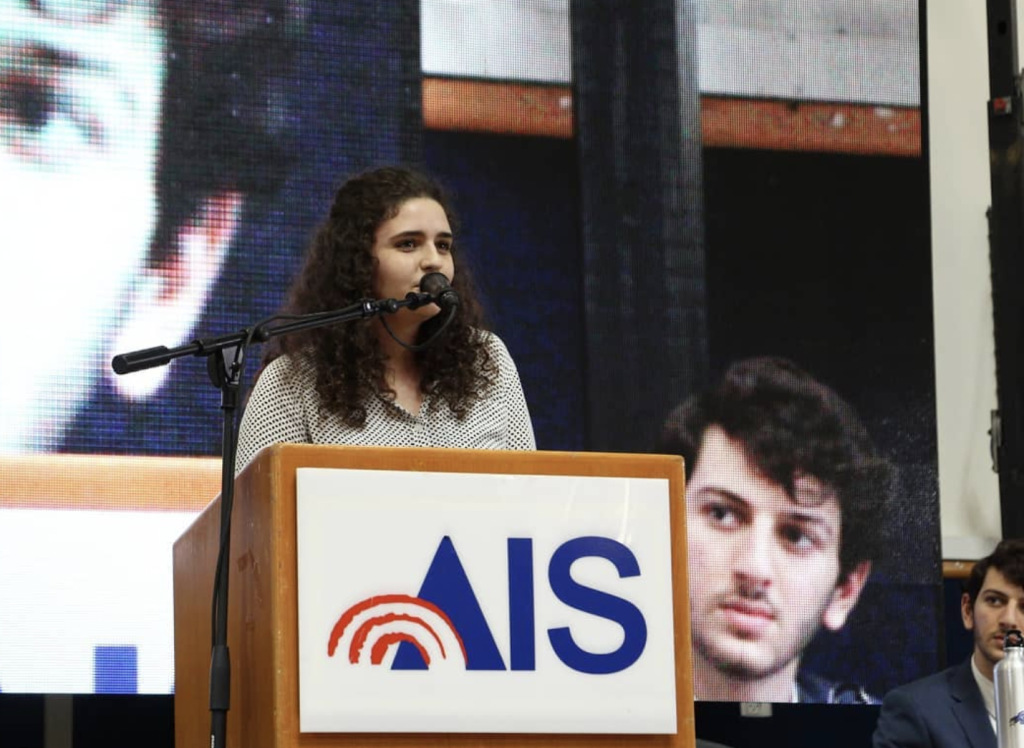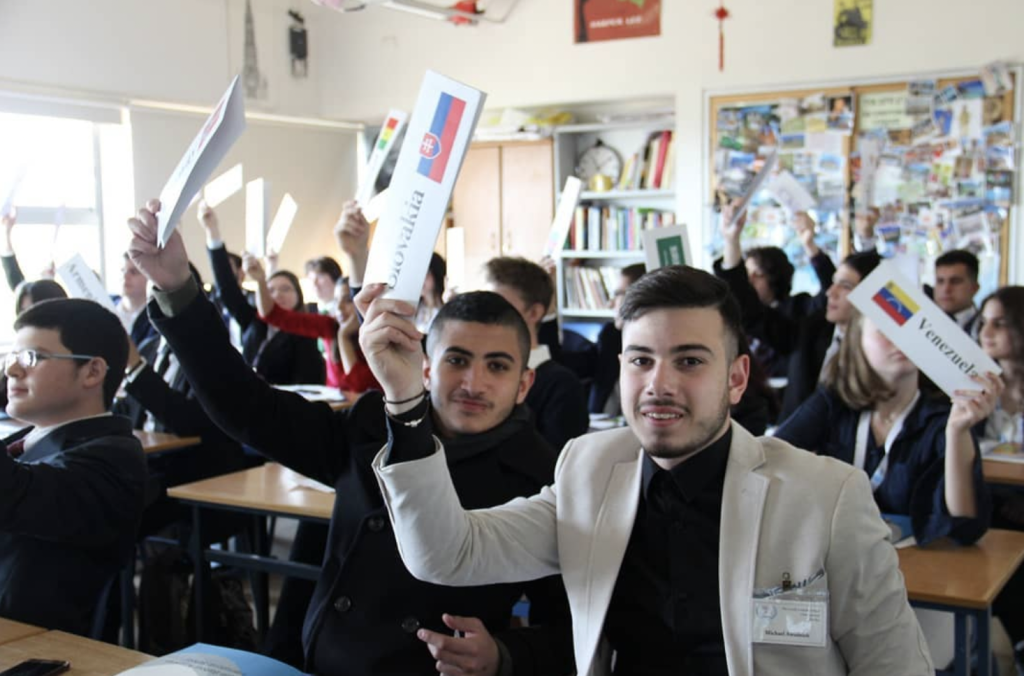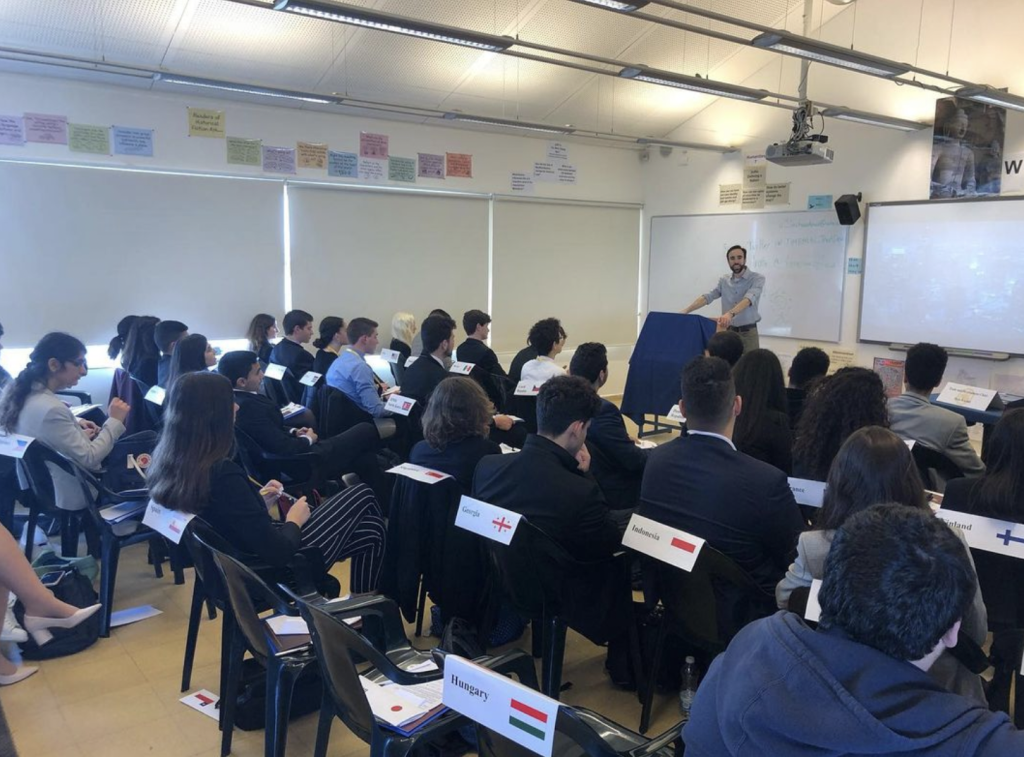Here is a list of all the committees that were represented in TIMEMUN 2024.
Beginner committees (Delegates for whom TIMEMUN is their first – third MUN conference. Capped at 40 delegates per committee)
UN Commission on Science and Technology (CSTD)
Space Debris: With an increasing number of countries–and private companies, active in outer space, space debris (things discarded intentionally or inadvertently in outer space) has become of increasing importance. The European Space Agency (ESA) reports an estimated 36,500 “large” space debris objects, but over 130 million tiny pieces of space debris. As space activity increases, and accidents caused by space proliferate, this only creates more debris and greater risk. The situation calls for regulation and intervention.
Cybercrime: The end of 2023 there were over 5 billion internet users globally, and nearly as many social media users, 60-65% of the global population. The internet is a transformative technology, offering opportunities for global communication, education and finance, but it comes at a price. Cybersecurity for individuals, companies and governments is a growing concern. IBM reported that the average data breach cost companies 4.45 million dollars. Most cybercrimes can be much smaller and may never even be detected, but violate the privacy of users. Between identity fraud, theft, and cyber-terrorism, there are numerous issues to be addressed.
UN Environment Programme (UNEP)
Rising Sea Levels: Rising sea levels are one of the consequences of climate change, with dire consequences for everyone, especially coastal communities and islands. While the global sea level has risen over 20 cm in the last century, in the last 20 years the rate has more than doubled. 10% of the global population lives in a coastal zone with low elevation, putting cities like London, Shanghai and New York, as well as small island states, at great risk of flooding, leading to potential mass refugee events.
Fashion Industry: The growth of the fashion industry has been a boon for clothing designers and manufacturers–at the expense of the environment. With 80 billion articles of clothing bought a year, there are tremendous amounts of waste, and environmentally harmful production practices, leading to 90 million tons of textiles and other materials thrown out annually–enough to fill 7% of the landfills in the world. With 87% of material used to make an item of clothing discarded, the fashion industry alone is responsible for up to 8% of greenhouse gas emissions and 9% of microplastic pollution in the oceans. This committee will try to address environmentally responsible production and consumption of clothing.
Intermediate committees (Delegates who have been to at least three conferences already. Capped at 30 delegates.)
African Union (AU)
Political Stability: Central and West Africa have been plagued by political instability, with nine military coups in a three year span, including Mali, Guinea, Sudan, Chad, Burkina Faso, Gabon, with several countries experiencing multiple coups, or descending into civil war. That figure doesn’t even include numerous failed coups. These coups threaten efforts to stabilize the region politically, militarily and economically, hinder development investment, complicate relationships between neighboring states and pose risks of spreading to additional countries. The AU will suggest measures to strengthen the political stability within member states, while encouraging peaceful, democratic transitions of power.
Violent Non-state Actors: Violent non-state actors pose one of the greatest threats to peace and prosperity in Africa. Groups such as Boko Haram; al-Shabab; Al-Qaeda; ISIS; Tigray separatists, and militias in Libya, Sudan, Mali and other countries, all cause harm to civilians, national and regional stability. Such groups may be local or global jihadi groups, ethnic separatist movements, or paramilitaries struggling for control over a country. The AU will try to find a unified approach to addressing this dangerous phenomenon.
Model Knesset
Writing a Constitution: After 75 years, it is time for Israel to finally get a constitution. The mock Knesset will debate issues related to separation of powers; religion and state; civil rights, and minorities, and attempt to pass a Constitution for the first time in Israel’s history.
Earthquake Preparedness: The devastating earthquake which struck southern Turkey and northern Syria in February 2023 was a warning sign for Israel, which sits on the Sinai microplate at the nexus of the African and Arabian tectonic plates, and hasn’t had a major earthquake in a century. The Knesset will address the need to better prepare for a potentially catastrophic large-scale earthquake..
Security Council (SC)
Afghanistan conflict: Two years after the Taliban resumed control over Afghanistan, the country faces a growing humanitarian crisis. An estimated 70% of the population, nearly 30 million people, required humanitarian assistance in 2023, a situation complicated by several large earthquakes in October, and Pakistan’s plans to return up to 1.3 million Afghans living in Pakistan illegally. Moreover, Taliban control has seen a steady erosion of women’s rights and human rights, causing further harm to the national economy. The Council will attempt to reach a consensus on addressing this dire situation. Sudan conflict: In early 2023, four years after Sudan’s longtime dictator Omar Bashir was removed from power, Sudan’s two most powerful military bodies–General Abdel Fattah al-Burhan’s Sudanese Armed Forces (SAF), and Mohamed Hamdan “Hemedti” Dagalo’s Rapid Support Forces (RSF) opened a deadly battle for control of Sudan. Months later, the country is mired in civil war, with thousands dead and millions of displaced Sudanese civilians. The UNSC will address this ongoing conflict and debate what actions the UN should take.
Historical Council 1986
The Historical SC will be dealing with the 1986 Chernobyl nuclear meltdown as well as the Iran-Iraq war. The committee will deal with the fallout for neighboring countries and the possible impact on nuclear energy best practices as well as weapons limitations globally, and the regional implications of the ongoing Iran-Iraq war and attempt to bring this long-standing conflict to a peaceful resolution.
CRISIS | Trump’s Legal Team
In this crisis committee, students will represent key characters from Donald Trump’s legal team and try to formulate legal strategies to address the various legal challenges faced, while bearing in mind potential implications for Trump’s chances of re-election, as well as their own characters.
Advanced (Delegates who want a more dynamic, challenging committee. Capped at 20 delegates.)
Security Council (SC)
Afghanistan conflict: Two years after the Taliban resumed control over Afghanistan, the country faces a growing humanitarian crisis. An estimated 70% of the population, nearly 30 million people, required humanitarian assistance in 2023, a situation complicated by several large earthquakes in October, and Pakistan’s plans to return up to 1.3 million Afghans living in Pakistan illegally. Moreover, Taliban control has seen a steady erosion of women’s rights and human rights, causing further harm to the national economy. The Council will attempt to reach a consensus on addressing this dire situation. Sudan conflict: In early 2023, four years after Sudan’s longtime dictator Omar Bashir was removed from power, Sudan’s two most powerful military bodies–General Abdel Fattah al-Burhan’s Sudanese Armed Forces (SAF), and Mohamed Hamdan “Hemedti” Dagalo’s Rapid Support Forces (RSF) opened a deadly battle for control of Sudan. Months later, the country is mired in civil war, with thousands dead and millions of displaced Sudanese civilians. The UNSC will address this ongoing conflict and debate what actions the UN should take.
Historical Council 1986
The historical SC will be dealing with the 1986 Chernobyl nuclear meltdown as well as the Iran-Iraq war. The committee will deal with the fallout for neighboring countries and the possible impact on nuclear energy best practices as well as weapons limitations globally, and the regional implications of the ongoing Iran-Iraq war and attempt to bring this long-standing conflict to a peaceful resolution.
CRISIS | Trump’s Legal Team
In this crisis committee, students will represent key characters from Donald Trump’s legal team and try to formulate legal strategies to address the various legal challenges faced, while bearing in mind potential implications for Trump’s chances of re-election, as well as their own characters.
CRISIS | Marvel
Avengers Initiative In the Avengers committee, delegates will take on the roles of Avengers superheroes, and protect the planet from the Chitauri Invasion and other global crises.


